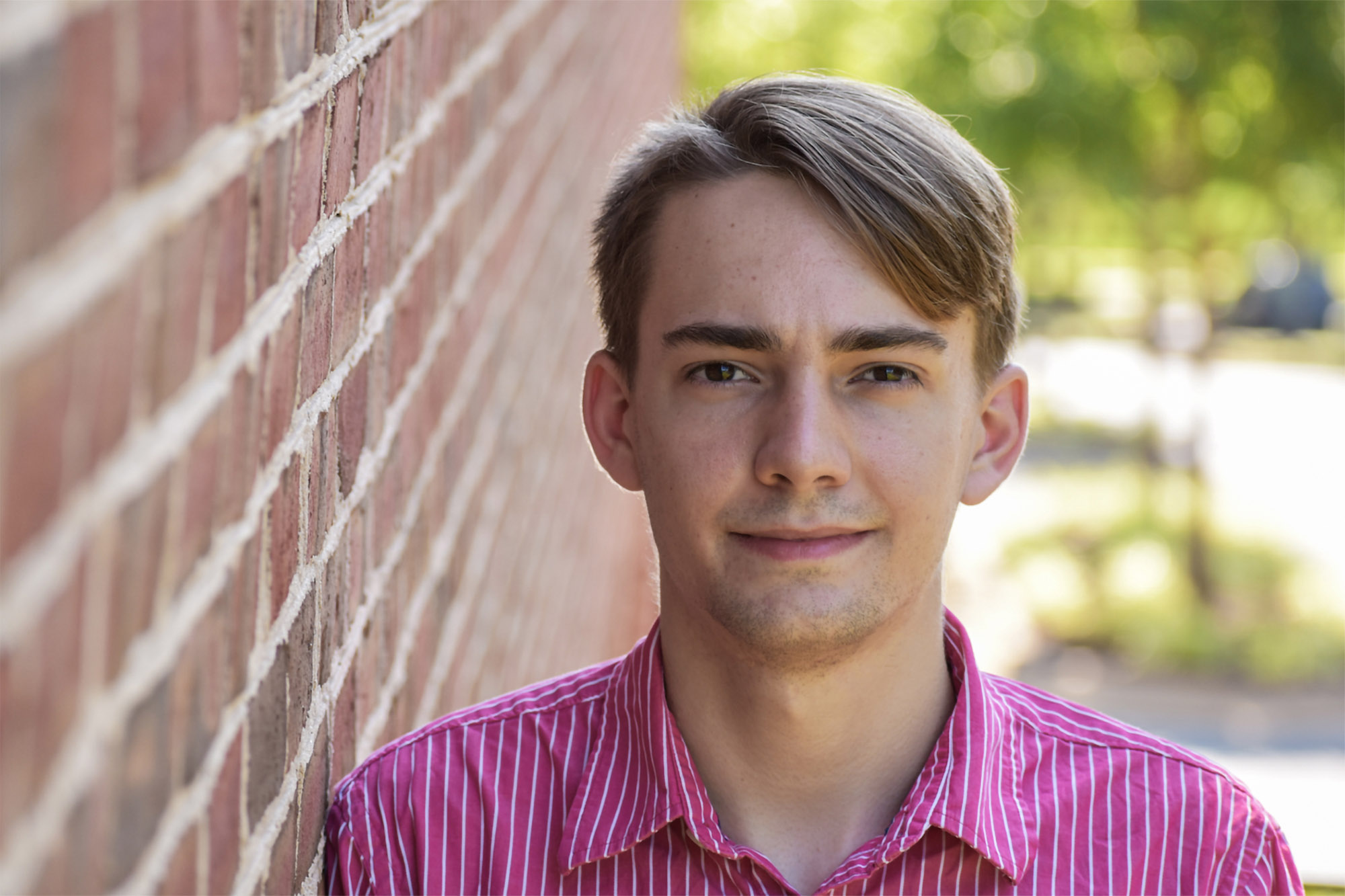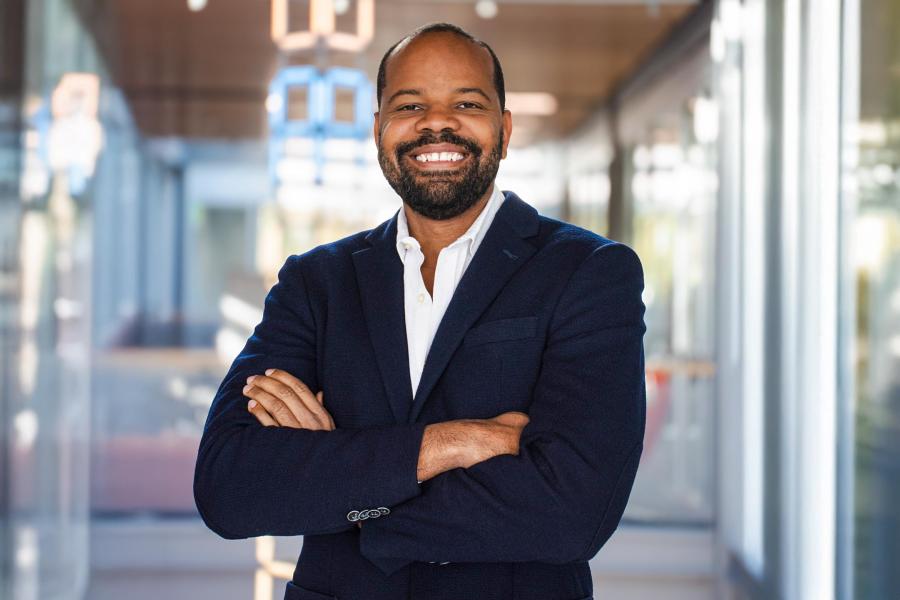Henry Carscadden is expanding his horizons, both as a member of the U.S. Space Force and as a computer science researcher.
Carscadden, who graduated from the University of Virginia in May, received a Louis T. Rader Undergraduate Research Award, given by the School of Engineering’s Department of Computer Science, for his work at UVA’s Biocomplexity Institute, where scientists use mathematical and computational science to solve problems. These awards go to undergraduate students based on their academic achievements, ability to get along with people and demonstrated capacity to work hard.
Carscadden, from Goochland, has more than research in his future. While he was an Air Force ROTC cadet at the University, Carscadden, who graduated with degrees in computer science and mathematics, is now a member of the U.S. Space Force.
“Last summer, all Air Force cadets, except those headed toward flying, were offered the opportunity to apply to serve in the Space Force instead of the Air Force,” he said. “Prior to this opportunity, I had been most interested in working operations research in the Air Force because of its research-style environment.”
Carscadden, who was one of five from his ROTC class to opt for the Space Force, thinks the potential of space is in transforming the terrestrial economy.
“For example, the launch of initiatives such as Starlink [a satellite internet system being built by SpaceX] might provide high-availability, high-speed internet to rural communities, which could promote more even economic development,” Carscadden said. “That being said, I see no real use for humans in space at this point besides scientific progress. As far as I can tell, the current value of space to humanity consists in unmanned spacecraft providing some service.”
Carscadden is conducting network science research at the Biocomplexity Institute and his work there on complex networks earned him the Rader Award.
“The idea of network science is that you can break a system into atomic units and define local interactions between the units to understand the system as a whole,” Carscadden said. “Many systems work like this, contagion spread being one of them.”
Carscadden’s research focused on finding a way to efficiently allocate resources to block two contagions spreading simultaneously in a population.
“Multiple contagions is a newer area and we focused on a simpler type of contagion model than disease,” he said. “We worked on blocking the spread of social contagions, such as some type of fad, on a network. This is important because we can try to extend these tools to real diseases to decide how to allocate scarce resources when multiple contagions are spreading through a population.”
Carscadden and his work are highly regarded at the institute.
“In general, the quality of the students in the computer science department is excellent and many of them take part in research with faculty members,” S.S. Ravi, a research professor at the Biocomplexity Institute. “The award is very competitive. We nominated Henry since his distinguished major project resulted in a conference publication and was subsequently invited to a journal. Henry is co-author of several other papers that discuss some software subsystems within a cyber-infrastructure for network science. We were thrilled that Henry was chosen as one of the winners.










